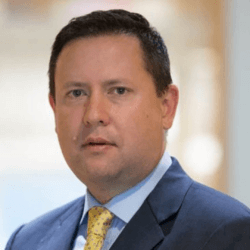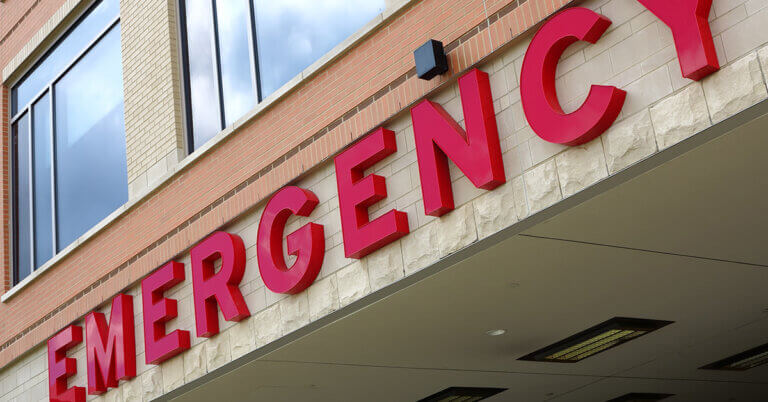February 4, 2021

2020: A Year Like No Other – Insights, Comments and Interviews
At the beginning of 2020, US healthcare showed every sign of continuing 2019’s wave of growth and consolidation. Soaring valuations and an influx of new investment capital bolstered the optimistic outlook.
By March, the reality of the global pandemic had set in. We knew that an unprecedented year was upon us.
Businesses around the country instituted work-from-home measures almost overnight. Healthcare organizations took urgent steps to prepare for a medical catastrophe while desperately seeking PPE equipment. Most diverted care delivery to digital platforms. Behind the scenes, pharmaceutical manufacturers launched an unparalleled global effort to develop a vaccine for a virus that was still poorly understood.
On the financial front, the federal government released emergency funds to keep providers solvent and operational. Meanwhile, healthcare investors went “pencils down” on deal-making, and turned their attention to the needs of their portfolio companies.
Almost immediately, Cain Brothers experienced a massive volume of inbound calls from industry leaders and top investors seeking guidance, support and perspective. We responded in real-time as the crisis unfolded by convening with organizations across all sectors and growth stages. As the fog cleared, we also began to develop, gather and share perspectives on COVID-19’s longer-term impact in terms of industry disruption and acceleration toward value-based business practices.
In the process, Cain Brothers produced 47 Insights and Comments and conducted a dozen podcast interviews with industry leaders. We’ve organized our 2020 review into the following five categories:
- Consolidation and Funding: How consolidation and investment capital continued to shape industry change
- Policy and Finance: The regulatory, taxation and financial shifts that influenced industry responses and strategy
- Crisis Leadership During COVID: How leaders across healthcare steered their organizations through uncertainty toward new ways of working, operating and delivering value
- The Industry Response to COVID: How organizations, sectors and markets reacted to the crisis in real time
- Our Post-COVID Future: How the industry, irrevocably shaped by COVID, continues to drive toward enhanced healthcare consumerism and value.
Each section contains topical articles and podcasts. We invite you to contact and engage with Cain Brothers’ subject matter experts. Click here to read the full report.
Consolidation and Funding
Despite the disruption of COVID-19, long-term trends in US healthcare proved remarkably resilient. If anything, the pandemic acted as a catalyst, accelerating the shift to consumerism and the adoption of digital technologies and pro-market regulatory measures.
Awash in capital, 2020 had promised a record pace of consolidation, investment, and transformation. Even with COVID, 2020 did not disappoint. After the pause on deal-making in spring, strong deal flow resumed in August. The Livongo Teladoc merger (with a combined market capitalization of $37 billion at the time of the announcement) became a bellwether event.

Other noteworthy deals, IPOs or financings included the Walgreens Boots Alliance’ $1 billion investment in Village MD, Oak Street Health’s $320 million IPO and subsequent deal with Walmart, and Cano Health’s $4.4 billion IPO through Jaws Acquisition Corp, a Special Purpose Acquisition Company or SPAC. SPACS emerged as a popular funding mechanism that intensified investment activity.
Click here to read the full report.
Vertically-integrated providers fared better during the pandemic than treatment-centric organizations. The loss of elective surgeries took a devastating toll on hospitals and physician groups. Regulatory changes and government-funded relief mitigated the financial impact.
Providers responded by tightening operating budgets, embracing telehealth visits and addressing consumer patient safety fears. In many hospital-centric organizations, efforts to advance value-based care delivery took a backseat to restoring status quo operations.
At the end of 2020, the once-feared joint venture between Amazon, JPMorgan Chase and Berkshire Hathaway announced its demise after just three years. At the same time, Amazon brought its distribution might to the prescription drug market with the
unveiling of Amazon Pharmacy.
Industry-outsiders (including tech giants) have intensified their investments in US healthcare, seeing opportunity. Retail giants like Walmart and CVS along with UnitedHealth Group and Optum continue to accumulate market clout.
Cain Brothers’ Insights and Comments included:
- Acute-Care / Non-Acute-Care Partnerships (1/21)
- Widen the Funnel and Close the Gaps: The Summit-CityMD Combo Sees “Big Apple” Opportunity through
- Integrated Care Delivery (1/29) with House Calls Podcast Episode
- Consolidation….Big Time (2/18)
- Gastroenterology Industry Update (3/10)
- A Perfect Fit: 3D Printing for Dentistry (6/18)
- Partnering with a SPAC? Why the Latest SPACs are Worthy of Consideration (7/28)
- The Consolidation of Clinical Research Sites is Both a Business Need and Societal Value-Add (9/25)
- Where Retail and Tech Giants Are Investing in Healthcare Delivery and Why Health Systems Should Pay Attention (11/10)
- The Evolving Women’s Health Sector (11/17)
- The Worst and Best of Times: Investor Perspectives from Cain Brothers’ Healthcare 2020 Virtual Conference (12/17) with House Calls Podcast Episode
Click here to read the full report.
Policy and Finance
In a presidential election year, healthcare politics became an important topic of speculation. Would a Democratic administration push for Medicare-For-All? Would a second Trump term mean the demise of Obamacare?
On balance, public opinion shifted in favor of the Affordable Care Act (ACA) with broad support for its key coverage provisions. Generally, healthcare insiders expressed confidence in the resilience of the ACA regardless of the outcome of the Presidential election or Supreme Court rulings on the law.
A number of regulatory changes moved the needle on value. These policy measures would have been the big story of healthcare in 2020 if not for COVID.
Notable regulations included:
- Interoperability stipulations that increase access to patient information
- Pricing transparency rules that force hospitals and insurers to publish their rates
- Site neutrality laws that encourage the delivery of care in lower cost settings
Law-makers expressed bipartisan outrage over the issue of surprise billing. The massive year-end stimulus bill contained new consumer protections against that practice. Yet, most experts believe the new rules are provider-friendly and will increase health insurance costs over time. 2020 also witnessed innovative healthcare financing transactions in both the taxable and tax- exempt markets.
Cain Brothers’ Insights and Comments:
- The Convergence between Corporate Finance and Municipal Finance in Healthcare (1/28)
- Medicaid’s Institution of Mental Disease Exclusion Waiver Presents New Opportunities to Expand Access for Patients with SMI/SED (2/3)
- Healthcare Policies in Focus During an Election Year (2/11)
- Recent Changes in Skilled Nursing Reimbursement (2/26)
- Taxable Agency Refinancings – Lower interest Rates And No Liquidity Covenants: Why Are Nonprofit Senior Living Providers
- Limiting Themselves To Only Tax-Exempt Bond Debt? (8/18)
- Money and Politics (11/23)
Click here to read the full report.
Crisis Leadership in the Time of COVID
Markets thrive on stability. The pandemic disrupted normal market function and generated organizational confusion and societal breakdown on a global scale. In response, healthcare organizations led from the front.
Cain Brothers convened top healthcare leaders across sectors to learn their perspectives on the crisis. In candid, somber conversations we discussed how their organizations were responding internally and with customers; and their longer-term outlook on US healthcare.
Our interviewees described how they were navigating formidable organizational challenges. In particular, they viewed the pandemic as a catalyst for consumerism that would have a lasting impact on expectations and behaviors.
Within their communities, leaders observed how gaps in social determinants of health exacerbated and illuminated deep disparities in health status. They also noted the resiliency and flexibility of value-driven business models in the market as the pandemic challenged status quo business practices.
Our interviews, distributed via House Calls podcast episodes, included:
- Interview with Dr. Steve Udvarhelyi, President and CEO of Blue Cross and Blue Shield of Louisiana (3/31)
- Interview with James Hereford, CEO of Fairview Health Services (4/8)
- Interview with Stephan Rodgers, CEO of AccentCare Inc. (4/16)
- Interview with Terry Akin, CEO of Cone Health (4/28)
- An Interview with Dr. Scott Hayworth, President and CEO of CareMount Medical and Kevin Conroy, CFO and CPHO of
CareMount (4/30) - Interview with Private Equity Executives (5/13)
- Panel Discussion: Elective Procedures Outlook (6/5)
Click here to read the full report.
The Industry Response to COVID
COVID-19 triggered an unparalleled response in organizations across the economy, particularly in healthcare.
In an atmosphere of crisis and confusion, organizations adopted new protection and safety measures, reinvented work processes, adopted technology platforms and new operating modalities, even as they shored up financial gaps to maintain operations.
Meanwhile, pharmaceutical manufacturers and their partners adapted and sped up their clinical trial processes. They employed breakthrough technologies to develop, manufacture and distribute COVID vaccines in record time at global scale.
Our Comments and Insights included:
- Major Viral Outbreak Requires Communication Beyond System Walls (3/3)
- Private Sector Leadership, Resilience, and the COVID-19 Outbreak (3/17)
- Financial Partnerships in the Face of a Distressed Market (3/24)
- The Far Shore (4/14)
- Health Tech to the Rescue: Combatting COVID-19 with Virtual Care and Predictive Analytics with House Calls Podcast Episode (4/20)
- Is the Senior Living Industry Changing Forever? (6/23)
- Health Systems: Is Big Tech Just What the Doctor Ordered? (6/30)
- Caught Between COVID-19 and the Election – An Update on Pharmacy Benefits Management and Drug Pricing Reform (7/7)
- How COVID-19 Has Catalyzed the Shift to Telemedicine for Mental Healthcare Services (7/14)
Pushing Forward (7/21) - The Continued Shift to the Outpatient Setting (8/11)
- The Bank of Health Insurers (8/25)
- Physician Practice Impact (9/1)
- Combined Provider/Payer Organizations Are Faring Better During COVID Than Provider-Only Organizations (10/6)
- The Digitization of Insurance Plans During COVID (11/3)
- The Critical Nature of Cold Chain Logistics (12/1)
- Attractive FHA-Insured Financing for Acute Care Hospitals in the Age of COVID (12/15)
Click here to read the full report.
Our Post-COVID Future
While COVID accelerated change in many healthcare organizations and markets, it is notable how longer-term trends toward value, efficiency, consumerism and care decentralization remain on track.
At the same time, rapid technological and business model changes experienced during COVID will reconfigure “winners and losers” as healthcare transformation unfolds.
In developing our perspective on the Post-COVID future of healthcare, we made the following predictions:
- The industry will engage with consumers far more holistically, according to personalized needs and priorities, even as the lines between bricks-and-mortar care, digital care, and health and wellness disappear.
- Progressive overhaul of the ACA will accomplish long-standing goals of increasing access, affordability and quality within a pluralistic public-private system.
- Health systems in disadvantaged urban and rural markets will need to reinvent themselves by redefining their role in meeting broader population health needs.
- The value of data interoperability, so apparent during the pandemic, will trump concerns about data sharing or ownership. Data will flow freely and fuel digital and clinical innovation.
- The renewed emphasis on population health and social determinants will mobilize a new era of public health that will align government programs, community programs and private sector efforts in more coherent and coordinated community-based delivery networks.
- Innovative advances in vaccine development will lead to breakthroughs in clinical care for many diseases and debilitating conditions.
- The evolution in services, coverage and healthcare business models will shift the US healthcare industry from being a drag on the US economy to an engine of prosperous growth.
Our Insights and Comments on the Post-COVID Future of Healthcare include:
- Public Health and Healthcare in Post-COVID America: Innovative Solutions for a Healthier, More Prosperous Society with House Calls Podcast Episode (5/21)
- Home Health is Where the Growth Is: The Post-COVID Rise of Platform Solutions with House Calls Podcast Episode (7/1)
- Innovative Solutions could Improve Access to Mental Health Services Longer-Term (8/4)
- The Future of Hospitals in Post-COVID America (Part 1): The Market Response with House Calls Podcast Episode (8/5)
- Evaluating Medical Supply Chain Options in a Post-COVID Environment (9/8)
- The Future of Hospitals in Post-COVID America (Part 2): The Policy Response with House Calls Podcast Episode (9/9)
- COVID-19 Impact on Senior Living and Financing Options for the Future (9/15)
- COVID-19 Will Accelerate Payment Reform (9/22)
- Opportunity and Optimism in the Senior Living Sector? (10/13)
- Disruption in Offshore Revenue Cycle (10/28)
- The Future of Clinical Trials: Decentralized, Diversified, Efficient and Fast with House Calls Podcast Episode (10/29)
- The Recent Telehealth Explosion Will Enable the Transition into Risk-Taking Models (12/8)
- Accelerated Growth within the Ambulatory Surgical Center Market (12/22)
Click here to read the full report.
Co-author
 Steven Alcauskas is a senior banker focused on pharmaceutical services, PBMs and laboratory services. Mr. Alcauskas joined Cain Brothers (KeyBanc Capital Markets) in 2015 and has over 15 years in experience. Over his career, Mr. Alcauskas has completed over 60 M&A, equity and debt transactions across the healthcare landscape. His notable transactions include the acquisition of Medco by Express Scripts and the attempted acquisition of Caremark, the acquisition of Theracom by AmerisourceBergen from CVS, the sale of Emdeon Business Services and Emdeon Practice Services, the IPOs of Inovalon, Quintiles, Shangpharma, Medidata, Health Insurance Innovations, Alimera Sciences, PRA International, and Amerigroup, and debt financings for Magellan, INC Research, inVentiv, Quintiles, Emdeon, Centene, and Aveta. Prior to joining KeyBanc Capital Markets, Mr. Alcauskas worked in Citigroup’s Healthcare Investment Banking Group for over 11 years. He began his career at UBS in the Healthcare Investment Banking Group. Mr. Alcauskas graduated from Boston College with a Bachelor’s degree in Finance and History, where he was a member of the Honors Program in the Carroll School of Management.
Steven Alcauskas is a senior banker focused on pharmaceutical services, PBMs and laboratory services. Mr. Alcauskas joined Cain Brothers (KeyBanc Capital Markets) in 2015 and has over 15 years in experience. Over his career, Mr. Alcauskas has completed over 60 M&A, equity and debt transactions across the healthcare landscape. His notable transactions include the acquisition of Medco by Express Scripts and the attempted acquisition of Caremark, the acquisition of Theracom by AmerisourceBergen from CVS, the sale of Emdeon Business Services and Emdeon Practice Services, the IPOs of Inovalon, Quintiles, Shangpharma, Medidata, Health Insurance Innovations, Alimera Sciences, PRA International, and Amerigroup, and debt financings for Magellan, INC Research, inVentiv, Quintiles, Emdeon, Centene, and Aveta. Prior to joining KeyBanc Capital Markets, Mr. Alcauskas worked in Citigroup’s Healthcare Investment Banking Group for over 11 years. He began his career at UBS in the Healthcare Investment Banking Group. Mr. Alcauskas graduated from Boston College with a Bachelor’s degree in Finance and History, where he was a member of the Honors Program in the Carroll School of Management.





